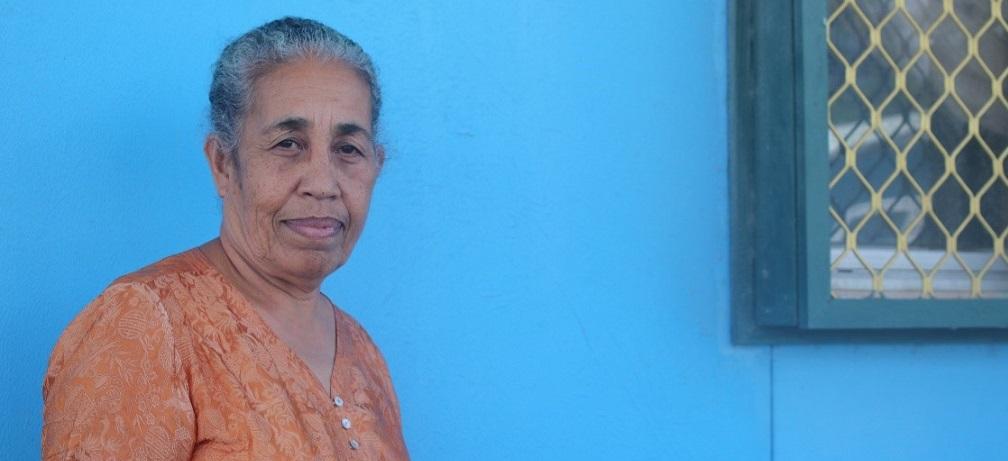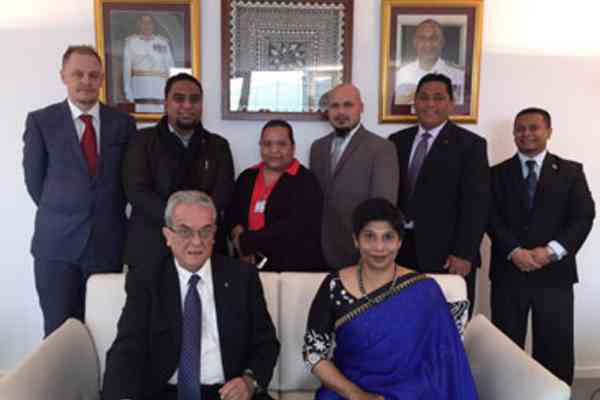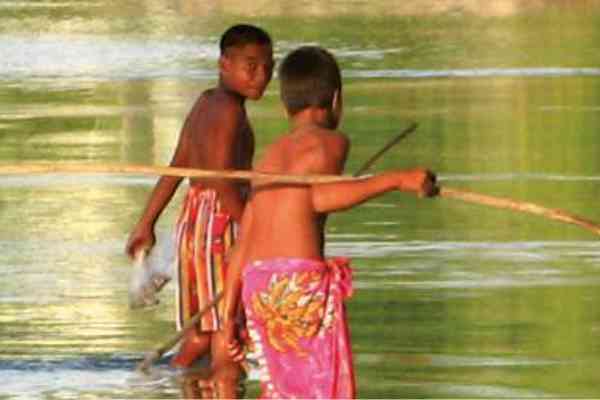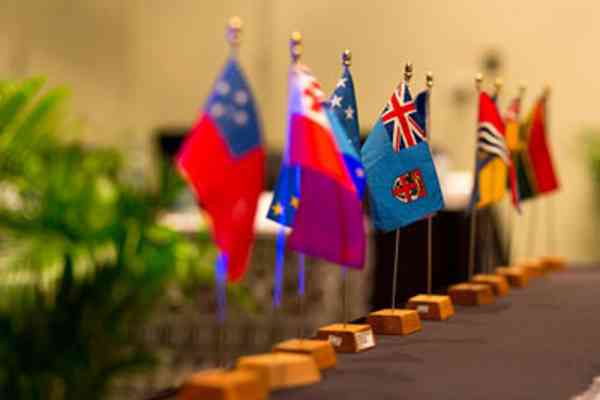Feature photo: Hannah Lafita, Associate Commissioner for the Public School System
By Danica Waiti
In addition to topics such as human rights and gender equality, students in the Republic of the Marshall Islands are now being taught about the nation’s nuclear past. Three curricula used by teachers in schools have been revised – Social Sciences for students in Grades 5-8 and 10; Marshallese Studies for Grade 9 students; and History for students in Grades 11 and 12.
The Public School System completed this work with technical assistance provided by the Pacific Community’s (SPC) Regional Rights Resource Team (RRRT) under the Pacific Partnership Project to End Violence Against Women and Girls programme.
Outcome One of the Pacific Partnership aims to enhance Pacific youth’s formal in-school and informal education on gender equality and prevention of violence against women and girls, focusing on integrating human rights and responsibilities into primary and secondary school curricula in Kiribati, the Republic of the Marshall Islands, and Tuvalu. In the Marshall Islands the programme is being piloted in nine elementary and secondary schools on Majuro, Wotje and Jaluit.
The board of the public school system endorsed the revised curricula in September 2019. According to Hannah Lafita, Associate Commissioner for the Public School System, highlighting the nuclear legacy is an important and unique component of the new content being taught in schools.
“We have a sad past. A lot of children don’t know about the extent and impact of nuclear testing that happened in our country”, acknowledges Ms Lafita who is mindful that passing on information from elders to children is sometimes restricted in Marshall Islands custom, particularly sensitive topics. Educators are aware that much of the information that students have about the nuclear legacy comes from the internet rather than the classroom or Marshallese families.
“The new generation has a right to know what happened, a right to information and the truth. We all have a responsibility to share what we know and talk to our kids”, said Ms Lafita. These sentiments are shared by young people as well, such as members of the Youth Leadership Coalition like Anfernee Nenol Kaminaga.
“Nuclear testing was a violation of our human rights”, says Nenol, “All Marshallese deserve to know about our history, even the classified parts”. Nenol is part of a generation that is calling for sensitive topics such as human rights violations to be discussed in the classroom and in homes. News that changes are coming to classrooms has been well received by Nenol and others. “If we look back at our past we can strive for a brighter future,” concludes Nenol.
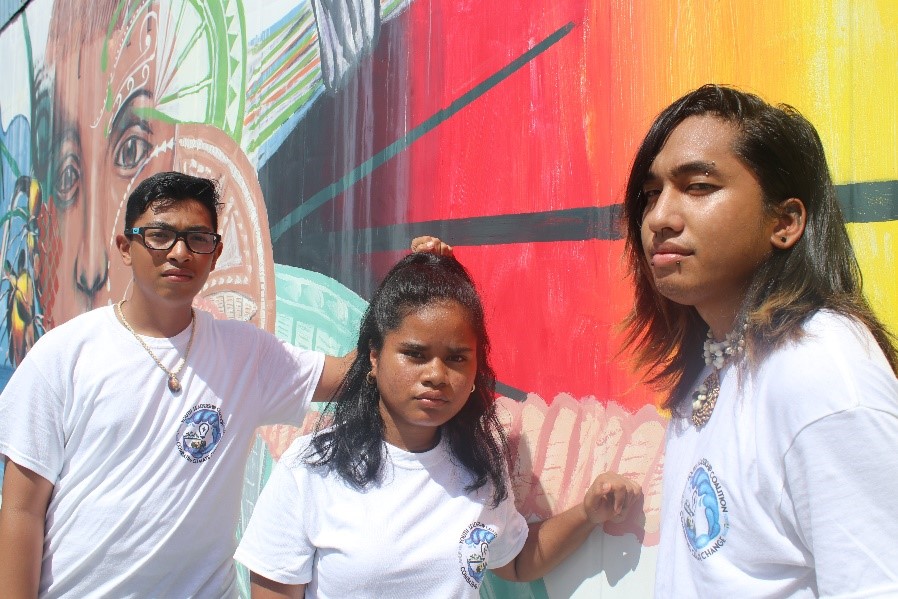
The aim of the Social Citizenship Education programme in Marshall Islands schools is “to equip school students and young people with the skills to be able to make good, considered decisions, work collaboratively and peacefully, and think critically and creatively to ensure the sustainable future of the atoll nation”, according to SPC RRRT Pacific Partnership Programme Manager, Mr Nilesh Goundar. To achieve this, changes to the curricula are being accompanied by the development of teaching and learning resources that weave cultural knowledge and human rights together. Over the next year revisions to curricula for lower level grades will be addressed by the Public School System, with technical assistance provided by SPC.
The Pacific Partnership brings together governments, civil society organisations, communities and other partners to promote gender equality, prevent violence against women and girls (VAWG), and increase access to quality response services for survivors. The EUR19.8million programme is funded primarily by the European Union (EUR12.7m) with targeted support from the Australian Government (EUR6.1m or AUD$9.6m) and UN Women (EUR0.6m).
